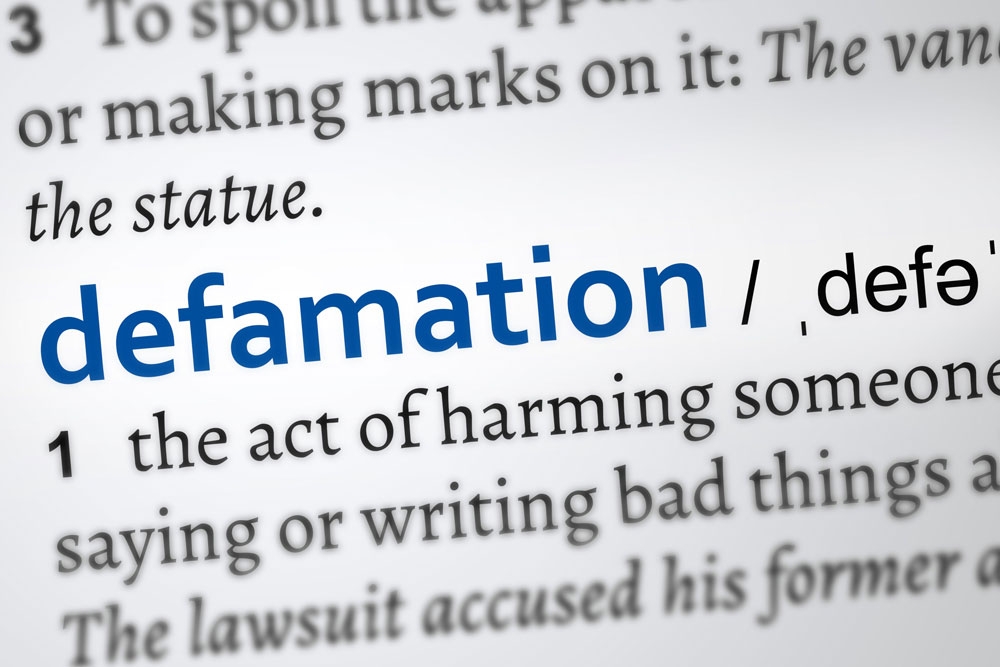The words some people write online may be harsh and, if written by someone from your practice, may need to be addressed from a medical PR standpoint. However online statements clash with your ethics as a medical provider, the negative impact may be far-reaching. People who make these statements may be considered negligent, especially if the opinions are presented as facts. Dealing with defamation as a medical practitioner may be one of the most important things you do to ensure your practice and livelihood do not suffer.
Understanding defamation
Defamation involves either speaking or writing falsehoods about a person or practice that are damaging. Slander is defined as defamation spoken out loud while libel is written. Many practices have seen an uptick in negative online reviews. When the statements convey incorrect information and injure the practitioner, the words may rise to defamation.
Acting on defamatory statements
As a professional in the medical field, it is not an option to ignore negligent or hurtful comments spoken about you or your practice. These words can carry serious implications for your career. When someone decides to spread false statements about you or your practice, it can inflict permanent damage on your reputation. Learning what you can do to fight back may be crucial to regaining your footing.
Know your state laws
The way defamation is handled varies by state. There is a commonality when it comes to establishing the foundational elements of defamation. Cornell Law School indicates four elements that should be present for statements to be considered defamatory. These include:
- The statement contains untrue information or opinions presented as facts
- The statements are communicated to others
- The party knows there are inaccuracies
- The statements are damaging
Speak to an attorney
An attorney in your area will be able to offer healthcare practice advice under the laws of your state. While defamation interpretation may vary slightly from state to state, the underlying theme of spreading inaccuracies as facts is not.
Proving defamation is not always easy. When people post online out of anger or frustration, they may not see the account as untrue. If a person feels wronged by you or someone within the office, offering up negative statements may not rise to defamation.
When the statements falsely indicate you have done something wrong and impact your reputation, the words may be considered defamatory. An attorney can help you decide how to proceed.
Take legally appropriate steps
There are a few ways you can act on defamatory statements. You should not try to correct these with online responses unless your legal representative advises you to. One step may include asking the person who posted the statement to take it down or revise it. Your attorney may write the correspondence as a way of conveying the seriousness of the matter.
You may decide to address the statements on your practice’s webpage. You may not necessarily want to call attention to the false information, but instead, author a blog addressing the inaccuracies in a general fashion. If things do not improve and the poster does not respond, your attorney may file a lawsuit.
We can help rewrite the narrative
Our staff at DG has years of experience working on reputation management for doctors. We take great pride in helping to drive traffic to websites and increase clientele. Allow us the chance to work on your practice’s website and show potential and current clients the type of service you provide. Give our team a call at 1-877-477-2311 and set up a consultation on getting your page on the right path.
Doctor Genius, located at 16800 Aston Street, Suite 270, Irvine, CA 92606, provides a range of services for practice success. We seek to meet our clients’ needs by providing a variety of marketing, SEO, practice optimization tools, and coaching to transform the healthcare experience. Though we work to provide the most accurate information, the content found on this website is solely intended for entertainment purposes. Therefore, we cannot guarantee that the information provided is entirely correct. You may not use the information on this site to cure, prevent, or diagnose a perceived medical issue. If you have healthcare-related needs, please speak directly to a healthcare professional. Never self-perform medical treatments discussed on this website. All images displayed are also for entertainment purposes only, and personal experiences may differ. Please note that the business tactics mentioned on this site might not be applicable to your industry or practice.

